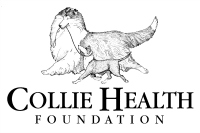Bloat (GDV)
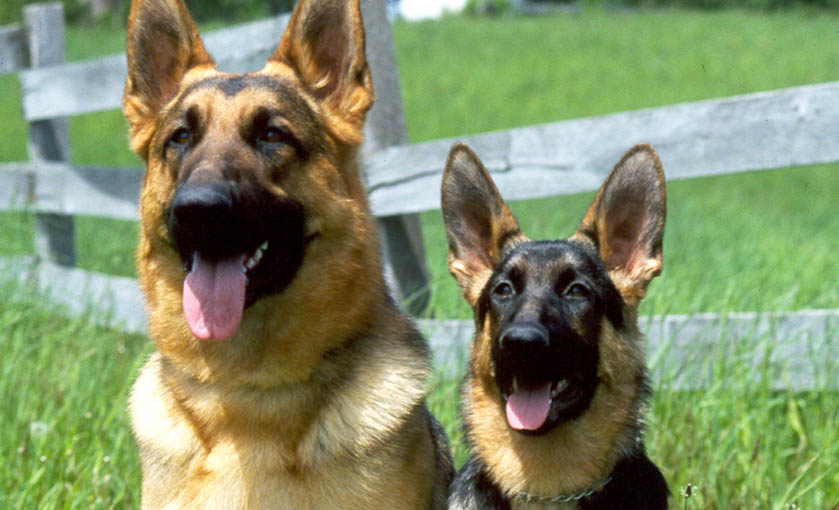
Gastric dilatation, commonly known as bloat, is a rapidly progressing and devastating condition that can develop in several different breeds of dogs. The condition is initiated when the stomach dilates and food and gas cannot be expelled. As the stomach dilates and expands, the pressure in the stomach begins to increase, causing inadequate blood return to the heart from the abdomen, loss of blood flow to the lining of the stomach, and rupture of the stomach wall. In some cases the stomach can become dilated enough to rotate in the abdomen, a condition called volvulus. The rotation can lead to blockage of the blood supply to the spleen and the stomach wall, and without immediate surgical correction of volvulus and removal of the dead tissues the patient can die.
Research
Research funded through the Bloat Initiative aims to establish the causes and pre-dispositions for gastric dilatation-volvulus (GDV), or bloat.
Grants
02233-A: Evaluation of a Novel Technique for Gastric Decompression in Dogs with Gastric Dilatation and Volvulus
Principal Investigator: J. Brad Case, DVM, MS; University of Florida
Total Grant Amount: $233,774; Grant Period: 11/1/2015 - 10/30/2017
02338: The Genetics of Bloat in German Shepherd Dogs: The Roles of Immune System Genes and the Gut Microbiome
Principal Investigator: Michael Harkey, PhD; Fred Hutchinson Cancer Research Center
Total Grant Amount: $152,270; Grant Period: 6/1/2017 - 11/30/2019
01935-B: Abnormalities in the Stomach's Ability to Contract Predisposes Large-Breed Dogs to Bloat
Principal Investigator: Laura L. Nelson, D.V.M.; Michigan State University
Total Grant Amount: $233,774; Grant Period: 1/1/2014 - 6/30/2019
01937-B: Evaluating the Complex Genetic Basis of Bloat
Principal Investigator: Elizabeth A. Rozanski, DVM; Tufts University
Total Grant Amount: $251,097; Grant Period: 1/1/2014 - 12/31/2017
Publications
Piras, I. S., Perdigones, N., Zismann, V., Briones, N., Facista, S., Rivera, J. L., Rozanski, E., London, C. A., & Hendricks, W. P. D. (2020). Identification of Genetic Susceptibility Factors Associated with Canine Gastric Dilatation-Volvulus. Genes, 11(11), 1313. https://doi.org/10.3390/genes11111313
Sharp, C. R., Rozanski, E. A., Finn, E., & Borrego, E. J. (2020). The pattern of mortality in dogs with gastric dilatation and volvulus. Journal of Veterinary Emergency and Critical Care. https://doi.org/10.1111/vec.12932
Fox-Alvarez, W. A., Case, J. B., Lewis, D. D., Joyce, A. C., Cooke, K. L., & Toskich, B. (2019). Evaluation of a novel technique involving ultrasound-guided, temporary, percutaneous gastropexy and gastrostomy catheter placement for providing sustained gastric decompression in dogs with gastric dilatation-volvulus. Journal of the American Veterinary Medical Association, 255(9), 1027–1034. https://doi.org/10.2460/javma.255.9.1027
Bell, J. S. (2014). Inherited and Predisposing Factors in the Development of Gastric Dilatation Volvulus in Dogs. Topics in Companion Animal Medicine, 29(3), 60–63. https://doi.org/10.1053/j.tcam.2014.09.002
Gazzola, K. M., & Nelson, L. L. (2014). The Relationship Between Gastrointestinal Motility and Gastric Dilatation-Volvulus in Dogs. Topics in Companion Animal Medicine, 29(3), 64–66. https://doi.org/10.1053/j.tcam.2014.09.006
Sharp, C. R., & Rozanski, E. A. (2014). Cardiovascular and Systemic Effects of Gastric Dilatation and Volvulus in Dogs. Topics in Companion Animal Medicine, 29(3), 67–70. https://doi.org/10.1053/j.tcam.2014.09.007
Educational Resources
CHF is excited to offer a free educational webinar "Bloat: What Every Dog Owner Needs to Know" with Dr. Elizabeth Rozanski. In the webinar, Dr. Rozanski explains what every dog owner needs to know about gastric dilatation-volvulus, or bloat. She presents the signs and treatment options for bloat along with current options for prevention.
Feature Articles
Genetic & Gut Bacteria Link to Bloat in Great Danes -- Featured in the Summer 2017 issue of the Great Dane Update, courtesy of Purina Pro Plan.
Bloat Initiative Sponsors
Champion Sponsors ($50,000+):
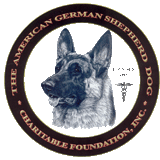
|
|
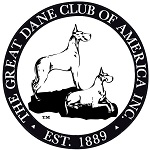
|
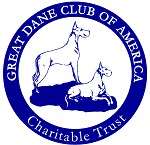
|
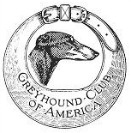 |
 |
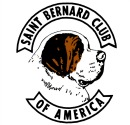 |
|
Sponsors ($2,500+) |
||
| Afghan Hound Club of America, Inc. Akita Club of America American Black & Tan Coonhound Club American Bloodhound Club American Chesapeake Bay Retriever Club Atlantic States Briard Club Basset Hound Club of America Borzoi Club of America Briard Club of America Health and Education Trust Delaware County Kennel Club Doberman Pinscher Club of America English Setter Association of America, Inc. English Springer Spaniel Field Trial Association English Springer Spaniel Field Trial Association Foundation Flat-Coated Retriever Foundation |
Forsyth Kennel Club German Shepherd Dog Club of America German Wirehaired Pointer Club of America Gordon Setter Club of America Great Pyrenees Club of America Greater Swiss Mountain Dog Club of America Irish Wolfhound Club of America Kuvasz Fanciers of America Newfoundland Club of America Charitable Trust Orthopedic Foundation for Animals Poodle Club of America Foundation Rhodesian Ridgeback Club of the United States Scottish Deerhound Club of America TarTan Gordon Setter Club Versatility in Poodles Weimaraner Club of America |
Help Future Generations of Dogs
Participate in canine health research by providing samples or by enrolling in a clinical trial. Samples are needed from healthy dogs and dogs affected by specific diseases.


